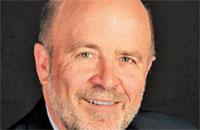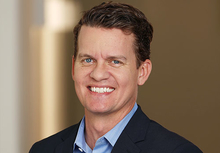GENEVA -- The struggling European auto industry will bounce back next year. Or maybe in 2016. Or maybe later.
It depends on whom you talk to among the executives here coping with depressed sales and the uncertain government response to Europe's economic crisis.
In interviews at the Geneva auto show, Fiat-Chrysler CEO Sergio Marchionne represented the optimistic end of the spectrum. "My expectation is that we will see a recovery in 2014 in some fashion once Europe gets its act together," he said.
On the other hand, Renault-Nissan CEO Carlos Ghosn has a dour view: "I don't think anybody is really foreseeing the pickup of the European market in the next two or three years. The only question is: Is it going to be bad or very bad?"
The main reason, Ghosn said during a press event here, "is the uncertainty that we see in Europe" about the euro, the structure of the European Union and -- especially -- government austerity policies. Stringent cutbacks in government programs and benefits in hard-hit southern European countries have stirred social unrest, he noted.
"This uncertainty around the plan to reduce the deficit and bring back Europe to a normal track of financial health -- this is, in my opinion, what is holding back the European market," Ghosn said.
On that point, he and Marchionne agree. Marchionne says automakers are waiting for a strong European Union response to the debt crisis.
"A lot of it depends on the political resolve of Europeans to find a way out of the quagmire that Europe finds itself in," Marchionne said. "I think there is a better than 50 percent chance that the collective will of Europe will be exercised to re-create conditions for growth."
"I do not think that three to five years is the term. I think that 2013 will be tough, and I suspect that if there was a resolution -- a European growth agenda -- that there will be a recovery of the markets already in 2014."

'Relentless on cost'
As they wait for decisive government action, automakers are cutting costs. General Motors Vice Chairman Steve Girsky says GM's German subsidiary, Adam Opel AG, has "been relentless on cost."
Girsky holds out hope that owners of aging vehicles eventually will get back into the market. Doubt about economic stability gives consumers "a reason to stay away," he said. But, Girsky added, "Over time those concerns dissipate." A few years ago, few in the United States foresaw the relatively fast recovery to the 15 million unit year likely in the United States this year, he said.
For now, though, Girsky said, "We are looking for when it will stop getting worse."
Ghosn and Marchionne predicted European governments would bail out any automaker on the verge of collapse, but Marchionne warned that "state intervention is only a stopgap measure."
Marchionne also said the likelihood of more plant closings depends on the speed of the recovery: "If we're seeing a recovery of the markets in 2014, then we will probably be able to coast along here and wait until the adjustment process happens naturally because demand will fill in the empty spots."
Pushing for share
Some automakers said the downturn is a good time to push harder. Andy Palmer, Nissan Motor Co. executive vice president, said Nissan's response to the tough market is to try to gain market share.
"One assumes that Europe can't stay in recession forever, so it's a good investment for the future," Palmer said.
Barb Samardzich, vice president for product development at Ford of Europe, says Ford is aggressively bringing new products to Europe. It showed the Indian-built EcoSport small crossover and the three-vehicle Tourneo line in Geneva.
"Not only have we not backed off on product in Europe, we have dramatically increased the amount of products that we're bringing in here," Samardzich said. "We look everywhere for opportunities to restructure ourselves, to get our cost down, to become more efficient but not sacrifice our product lineup at all."
She said the European market is within a couple of years of turning around.
"I think we're finally at the bottom. We'll probably skim along the bottom for a while, but then it'll take off," Samardzich said.
"You know, when this industry goes down, it goes down fast. It'll make your head spin. It's like an elevator dropping. And when it goes up, it goes up equally fast."










